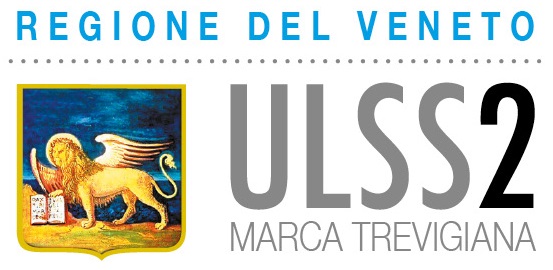Partners

Folkhälsomyndigheten, Sweden
The Public Health Agency of Sweden has a national responsibility for public health issues and works to ensure good public health. The agency also works to ensure that the population is protected against communicable diseases and other health threats. Our vision statement is a public health that strengthens the positive development of society.
The Public Health Agency of Sweden has the overall responsibility for the EUPAP project and reports directly to Chafea. The agency is an expert authority with responsibility for public health issues at a national level and works to ensure good public health and counteract health inequalities. We have the task of disseminating scientifically based knowledge to promote health and prevent disease and injury. In collaboration with other stakeholders, we offer knowledge based and methodological support. As well as monitoring and evaluation of preventive public health efforts.
"The physical activity on prescription method to promote physical activity on prescription within health-care was introduced in Sweden twenty years ago, it is a great privilege to be a part of a project that aims to develop and adapt this method for European health-care systems"
- Anna Bessö Head of department of Living Conditions and Lifestyles at the Public Health Agency of Sweden.
The EUPAP team in Sweden consist of experts within public health, physical activity, nutrition and epidemiology. In addition, the team also contains a communication specialist, an administrative manager as well as an administrative manager, with experience in the financial management of research projects.
The Swedish EUPAP team:
- Anna Bessö, Head of the Department of Living Conditions and Lifestyles. Anna Bessö has the overall responsibility of the project, takes the strategic decisions, and is the Swedish representative of the EUPAP Assembly.
- Annmarie Wesley, overall project leader for the EUPAP project
- Anna Jansson, responsible for legal and financial matters
- Agnetha Bäckman, administrative support
- Frida Persson, communication specialist
- Pia Lindeskog, responsible for the work with WP4 in Sweden
- Marita Friberg, overall responsibility for WP5
- Kajsa Mickelsson, overall responsibility for WP6
- Lena Hansson, responsible for the work with WP7 in Sweden.

General-Directorate of Health - Portugal
The Directorate-General of Health (DGS) is a public body of the Portuguese Ministry of Health with responsibility in guiding and developing Public Health programmes, improving healthcare and clinical organizational quality management, assuring national epidemiological surveillance, preparing and publishing health statistics and coordinating the international relations of the Ministry of Health.
Developed by the DGS, the National Health Plan (NHP) includes (2016-2020, 2021-2025), 12 priority programs for health prevention and promotion. In 2016 the National Program for the Promotion of Physical Activity (PNPAF) was created as a priority program, having been developed in the realm of the National Strategy for the Promotion of Physical Activity, Health and Well-Being 2016-2025.
The purpose of PNPAF is the promotion of physical activity of the Portuguese population, including the creation of tools and mechanisms to implement processes of counselling and physical activity on prescription in primary health-care settings.

National Institute of Public Health, Romania
Founded in 1927 as a hygiene and social medicine institute, the institution was acting as the methodological leader for the public health network in Romania.
The National Institute of Public Health (NIPH) provides technical assistance, including the provision of data, expertise and training, on public health and related matters to the Ministry of Health and its decentralized structures.
The National Centre for Health Status Evaluation and Health Promotion (NCHSEHP) within the NIPH is responsible for the surveillance of population health and well-being, of lifestyle factors, and coordinates the National Program for Health Status Evaluation, Health Promotion and Health Education.

Viešoji įstaiga Centro Poliklinika, Lithuania
Public institution Centro Poliklinika is one of the largest outpatient health care institutions in Lithuania.
Today, the clinic is proud of the latest information technology and computer-based patient registration, medical work system, a laboratory that meets the highest European standards, department of day-care therapy and curgery, also the branch of clinic of cursing, palliative medicine and social services
Centro poliklinika is the place, where we can always get help, advice, support, where our specialists are waiting to take care for our health, so that our lives are full, long and happy.

Institut Nacional d'Educació Física de Catalunya, Spain
INEFC - Institut Nacional d'Educació Física de Catalunya. (The National Institute of Physical Education of Catalonia). INEFC is a Higher Education Institution managed directly by the Government of Catalonia, whose mission is to provide education and training in the field of physical activity and sports, as well as to undergo leading scientific research in the field. Originally founded in 1975, INEFC joined the Barcelona Olympics’ spirit and moved to its current headquarters in the Olympic ring area in 1992.
INEFC has two academic campuses, Barcelona and Lleida, academically ascribed to the Universities of Barcelona and Lleida respectively. INEFC staffs more than one hundred fulltime teachers and researchers, being Physical Activity and Health, Sports Management and High Performance the main areas of specialisation.
In addition, INEFC sponsors its own research groups, joint projects with other Catalan institutions (eg, High Performance Sports Centre (CAR), the Catalan Sports Council (CCE)) and international partners.

Goethe - Universität Frankfurt
The Department of Preventive and Sports Medicine at Goethe University Frankfurt does government and third-party funded scientific research. It has been involved as a project leader or as an associated partner in national and international projects covering various aspects of health enhancing physical activity and structured exercise. The Department of Preventive and Sports Medicine is one of the leading research groups on physical activity and cancer, physical activity and back pain in Germany. Further research includes physical activity promotion in specific target groups, especially in socially disadvantaged populations. The Department of Sports Medicine was involved in the development of the nation-wide German „Sport for Health“ quality seal.

Region Midtjylland, Denmark
A One Provider Health Care System without Barriers – is a common vision from the Central Danish health cluster in the Region of Randers, comprising the regional hospital, four surrounding municipalities: Norddjurs, Syddjurs, Randers, and Favskov, and the region’s general practitioners. The shared vision is to ensure a leadership focus for collaboration and development of patient flows and health and care tasks. The Strategic Health Management collaboration has ensured the development and implementation of common health care measures with the objective to secure higher quality in each of the patient flows. These health and care measures are developed in “laboratories” using the evidence based scrum-method, where short experimental projects are executed within an overall frame of strategic intentions to secure the required development and learning.
In Denmark it is the Management of Strategic Health Randers (Sundhedsstrategisk Ledelse), including Randers Regional Hospital and the four Municipalities of Randers, Favrskov, Syddjurs and Norddjurs, who are working towards implementing the Swedish model of Physical Activity on Prescription (PAP).
The Management of Strategic Health Randers is a cross sectional health alliance consisting of Randers Regional Hospital, the four Municipalities of Randers, Favrskov, Syddjurs and Norddjurs, as well as general practitioners, whose purpose is to further develop and strengthen the relational ties across the different health sectors, as well as create change, improvement and solutions for a better health collaboration. The EUPAP project was given to the Management of Strategic Health Randers due their high experience working cross sectional. It is an essential part of the Swedish method to build bridge across healthcare services and the local community.
The Danish focus of implementing PAP is to engage our target group of mentally vulnerable patients into local activity organizations, communities, municipal facilities and/or sport clubs in order to make them stay committed to being more physically active over time. But also to bolster them socially and strengthen their feeling of self-efficacy and success.
The EUPAP team in Denmark consist of health managers from both the Hospital and the Municipalities. The management level constitutes our local PAP Steering Group and has the responsibility to make strategic choices of implementation and remove potential barriers for implementation. In addition, the team also contains frontline personnel who (will) work with PAP and whose responsibility is to execute the decisions of the Steering Group and support local implementation of PAP. Lastly, the team has an administrative manager who coordinate across all local levels, and who has the formal contact with Sweden and the rest of the EUPAP partners.
The Danish EUPAP team:
- Marianne Jensen, Nurse Director of Randers Regional Hospital. Marianne is also member of the EUPAP Consortium Group.
- Christina Breddam, Health Manager of Randers Municipality
- Jes Svenninggaard, Handicap and Psychiatry Manager of Favrskov Municipality
- Lone Sandahl, administrative support for WP3, WP6, and WP7
- Mette Maersk Clausen, Danish project leader of the EUPAP project and responsible for WP1-WP7 in Denmark

Vlaams Instituut Gezond Leven
The Flemish Institute of Healthy Living strives for a healhy Flanders. The institute is considered to be an expert authority when it comes to preventive health, and it tries to stimulate Flemish citizens, in a very accessible way, to maintain a healthy daily lifestyle.
The Flemish institute for Healthy Living is a Flemish government-funded, non-academic centre for health promotion and disease prevention and provides strategies, advice, methodologies and support for the implementation and training of health workers and professionals. The institute supports everyone who is working in health promotion and disease prevention, including both practitioners and policymakers. The mission of the organization is to promote a healthy lifestyle in a healthy environment and to contribute to a better quality of life for all inhabitants of Flanders. Our focus areas are health promotion, motivating use of preventive measures, healthy and sustainable food, physical activity and sedentary behavior, tobacco prevention and smoking cessation, mental health promotion, healthy environment and health inequality.
The Flemish institute for Healthy Living stands for quality and objectivity by aiming for evidence-based practices from national and international systematic research. The institute works in close collaboration with stakeholders and a range of field-, scientific and government organizations.
The EUPAP project is part of the theme ‘Physical Activity and Sedentary Behaviour’. Experts on physical activity manage a Flemish PAP since a couple of years in Flanders. These experts are also working within the EUPAP project.
Luc Lipkens
Karlien Devloo

Azienda Unita Locale Socio Sanitaria n2 Marca Trevigiana, Italy
Azienda ULSS 2 Marca Trevigiana (LHA2) is a local health authority in Veneto Region, providing health and social services to all the inhabitants of Treviso province. Through an integrated assistance model based on territorial units called “health districts”, it grants the satisfaction of people’s global needs, with particular regards to health and social protection actions. Since 2011 the “Medicina dello Sport e Esercizio Fisico (Sports and Exercise Medicine)” division has developed a program of tailored exercise prescription for patients with chronic and complicated pathologies (secondary prevention).
Contacts: Elena Procaccini elena.procaccini@aulss2.veneto.it
Laura Merlo laura.merlo@aulss2.veneto.it

Ministry for Health – Government of Malta
The Health Promotion and Disease Prevention Directorate within the Ministry of Health aims to protect and promote the health and well-being of the population by developing and implementing strategies for the reduction of communicable and non-communicable diseases, supporting and empowering individuals to adopt a healthy lifestyle and carrying out effective surveillance and control of communicable diseases.

